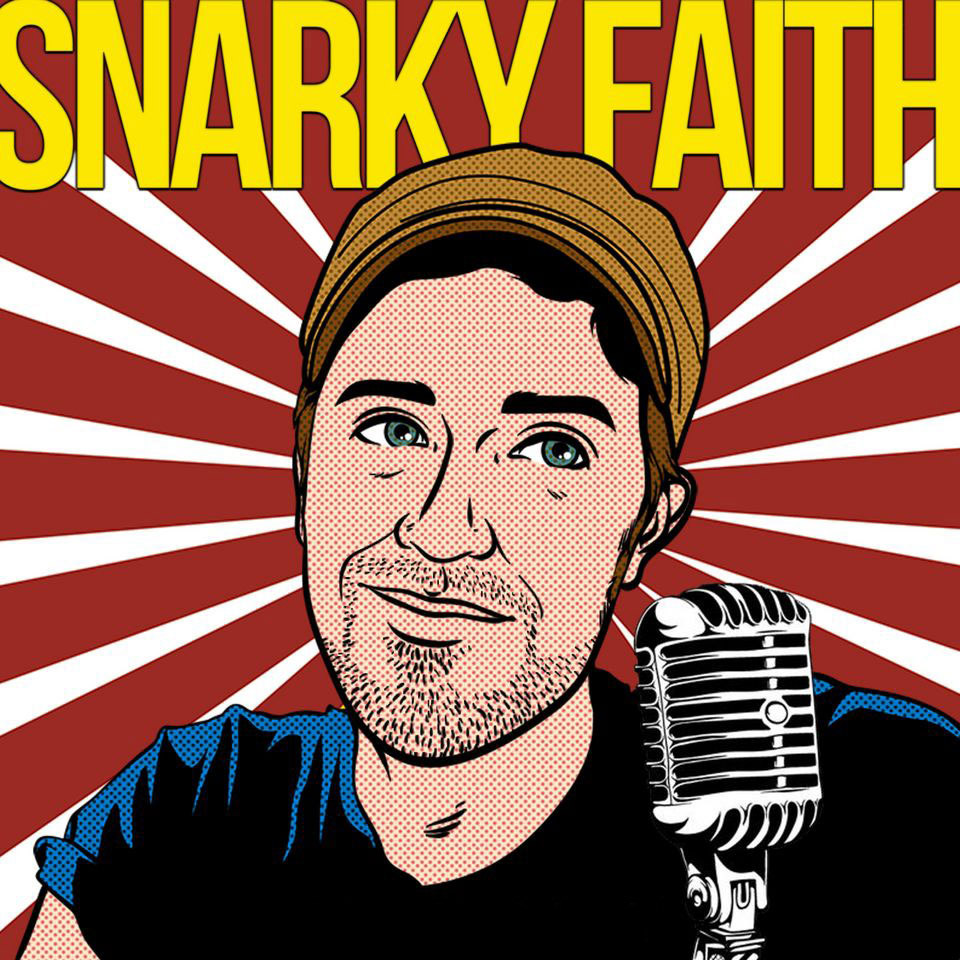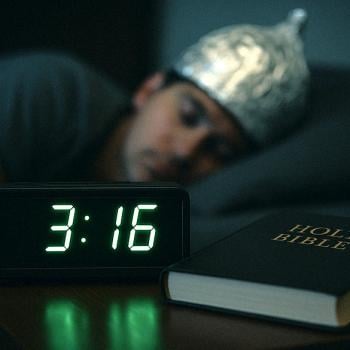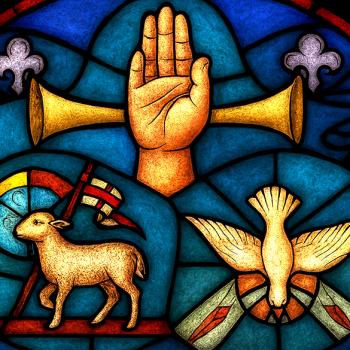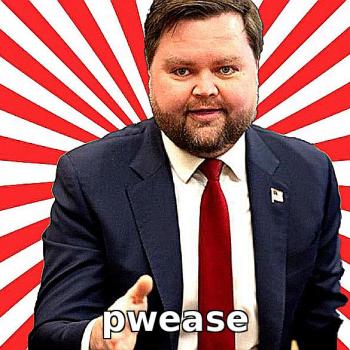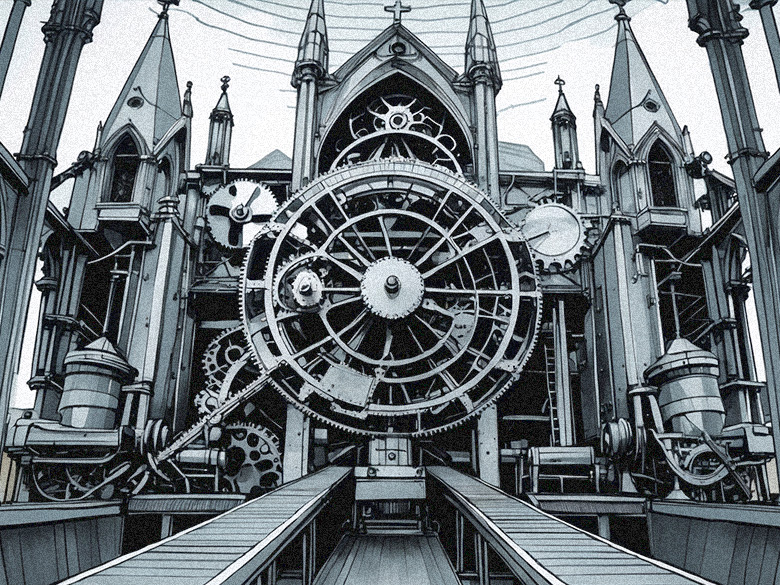
The Orphan Crushing Machine isn’t real—but it should be. Or rather, it should be talked about as if it were, because in many ways, it is.
The phrase comes from a 2020 tweet by @pookleblinky that cut straight through America’s cruelty theater with one sharp line:
“Every heartwarming human interest story in America is like ‘he raised $20,000 to keep 200 orphans from being crushed in the orphan-crushing machine’ and then never asks why an orphan-crushing machine exists or why you’d need to pay to prevent it from being used.”
It’s become shorthand for systems so normalized in their violence that no one questions them anymore. We treat surviving them as noble, fundraising around them as compassionate, and ignoring their existence as normal. The machine becomes background noise, and if you mention it, you’re the problem.
Which brings us to Christianity.
Because much of American Christianity today is just that—an orphan crushing machine wrapped in worship music and weaponized nostalgia. It isolates you from your own humanity, shames you for having needs, teaches you that you’re broken by design, and then sells you a solution to the problem it created. You’re not supposed to notice that the harm and the healing come from the same place. You’re just supposed to smile, tithe, and say thank you.
Built to Break
Step one in the machine is simple: make sure everyone knows they’re defective. From birth. No questions asked.
You’re a sinner. A worm. A wretch. You’re deserving of hell just for being alive. This is the foundational sales pitch of modern Christianity. And it starts young. Sunday School is less about wonder and more about planting the seeds of shame. By the time you’re old enough to question it, the guilt’s already calcified.
They love to quote Romans—“all have sinned and fall short of the glory of God”—as if it’s a mission statement. It’s not a call to grace; it’s a verdict, and you’re already condemned. The church doesn’t want whole people. It needs broken ones. People who doubt themselves, who can’t trust their own inner compass, who’ve been taught that “lean not on your own understanding” isn’t bad advice—it’s a commandment.
So the machine breaks you. It orphans you from your own worth, cuts you off from your own story, and hands you a pre-approved narrative in its place. It’s not healing—it’s erasure.
And when the pain sets in, they say that’s just conviction.
Faith Over Facts (2 + 2 = 5)
Here’s the next step: once your identity is crushed, your mind goes next.
The machine can’t afford critical thinking. It needs obedience. It needs people who’ll call doubt a sin and certainty a virtue. Who’ll hand over their reasoning and call it faith.
Take this gem from Pastor Peter LaRuffa, who once proudly said:
“If somewhere within the Bible I were to find a passage that said 2 + 2 = 5, I would believe it, accept it as true, and then do my best to work it out and understand it.”
That isn’t faith. That’s intellectual surrender. That’s what the machine requires: reality denial as an act of devotion.
Don’t trust your instincts. Don’t believe your eyes. Don’t acknowledge your experience unless it aligns with the doctrine. “Lean not on your own understanding,” they say, and turn that into a license to ignore anything inconvenient. It’s not just spiritual formation—it’s epistemic abuse. A mind that questions is dangerous. A mind that obeys without blinking? That’s gold.
The machine runs smoothest when no one thinks to ask why it exists in the first place.
Perpetual Orphanhood
Once the system convinces you you’re broken and blinds you to reality, all that’s left is to keep you dependent. Permanently.
You’re never quite saved. Never quite free. There’s always another sin to confess, another layer of unworthiness to peel back, another rung to climb on the sanctification ladder. Grace is offered—but only in installments. Forgiveness is promised, but always with strings attached.
The orphan never gets adopted. They just get a pew to sit in.
And here’s the kicker: those who’ve been chewed up the most often become the most vocal defenders of the machine. Because when healing doesn’t come, loyalty becomes a substitute for wholeness. Victims become enforcers. The hurt keep hurting, now with Bible verses to justify it.
The machine doesn’t just crush orphans. It teaches them to operate the gears.
Exporting the Machine
Eventually, the machine outgrows the church walls.
Once the system has been refined enough—well-oiled by shame, powered by fear, and marketed with precision—it gets repackaged for the culture wars. Enter Christian nationalism, book bans, bathroom bills, purity culture, forced birth, and a rabid obsession with control. It’s all the same machine, just dressed in red, white, and blue.
Now the “orphans” aren’t just spiritual—they’re political. Immigrants. Queer kids. Women. People of color. The poor. The outcast. Anyone who doesn’t fit the mold becomes fuel for the system. Their pain is useful. Their rights are negotiable. Their existence is a threat.
This isn’t about saving souls. It’s about securing power.
The machine doesn’t need faith anymore. It just needs a voting bloc.
Walking Away
Here’s the part the church doesn’t advertise: you don’t have to stay inside the machine.
You don’t have to keep letting it define you, crush you, use you. You don’t have to carry the shame it gave you or the fear it fed you. You don’t have to keep pretending this is what Jesus wanted.
Because Jesus didn’t build the machine. He flipped tables. He healed. He refused to play along. In his own words, he condemned the religious leaders of his day for loading people down with “heavy burdens, hard to bear,” while doing nothing to lift them. He called them out for converting people only to make them “twice as much a child of hell.”
If any of that sounds familiar, it should.
So walk away. Unplug from the gears. You were never broken. You were just born into a system that needed you to believe you were.
That’s the trick.
And now that you see it, you don’t have to play along.
For more Snarky Faith, check out the podcast and more:
- Snarky Faith website
- Snarky Faith on Instagram: @stuartdelony
- Snarky Faith on YouTube: @snarkyfaith
- Snarky Faith on Bluesky: @snarkyfaith.bsky.social
- Snarky Faith Group on Facebook: www.facebook.com/snarkyfaith
- Snarky Faith t-shirts and mugs available here.


